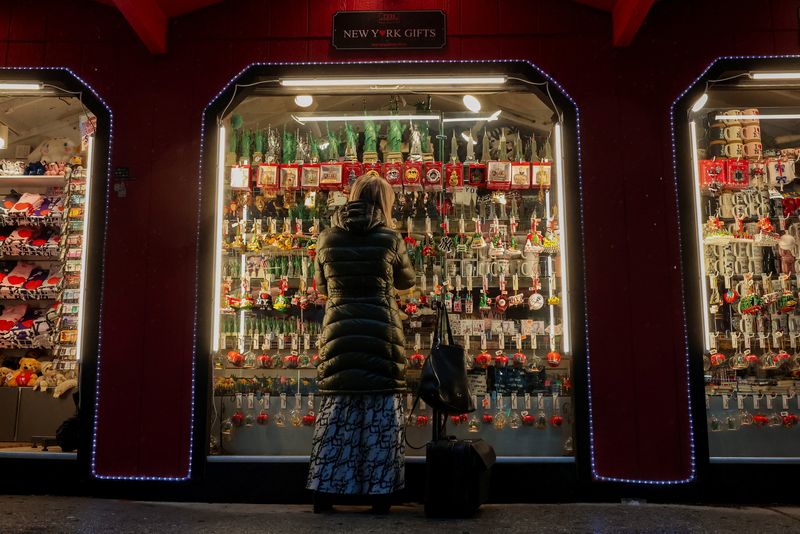By Lucia Mutikani
WASHINGTON (Reuters) -U.S. retail sales increased more than expected in November amid an acceleration in motor vehicle and online purchases, consistent with strong underlying momentum in the economy as the year winds down.
The report from the Commerce Department on Tuesday had no impact on expectations that the Federal Reserve would cut interest rates on Wednesday for the third time since the U.S. central bank initiated its policy easing cycle in September.
Fed officials were due to start a two-day policy meeting on Tuesday. Signs of strong domestic demand have added to warmer inflation readings in recent months in suggesting that the Fed could pause rate cuts in January.
Policies planned by President-elect Donald Trump’s incoming administration, including tariffs on imports and mass deportations of undocumented immigrants, are also seen complicating matters for the central bank.
“The market is still discounting a 25-basis-points rate cut tomorrow, but if consumers are still buying interest-sensitive goods like autos, a rational markets observer would have to wonder why would a central bank add fuel to the fire with a president-elect coming in at the end of January with one of the most pro-growth agendas of any president in history,” said Christopher Rupkey, chief economist at FWDBONDS.
Retail sales jumped 0.7% last month after an upwardly revised 0.5% gain in October, the Commerce Department’s Census Bureau said. Economists polled by Reuters had forecast retail sales, which are mostly goods and are not adjusted for inflation, advancing 0.5% after a previously reported 0.4% rise in October. Estimates ranged from a 0.1% dip to a 1.0% surge.
Retail sales increased 3.8% year-on-year in November.
Labor market resilience, characterized by historically low layoffs and strong wage growth, is underpinning consumer spending and keeping the economic expansion on track.
Strong household balance sheets, reflecting record stock market prices and high home prices, are also driving spending.
Household savings remain supportive.
The Fed’s benchmark overnight interest rate is currently in the 4.50%-4.75% range, having been hiked by 5.25 percentage points between March 2022 and July 2023.
LATE THANKSGIVING HOLIDAY
The solid increase in retail sales came despite a late Thanksgiving holiday that pushed Cyber Monday into December, and was consistent with a strong start to the holiday shopping season. It was also in spite of a less favorable seasonal factor, the model that the government uses to strip seasonal fluctuations.


